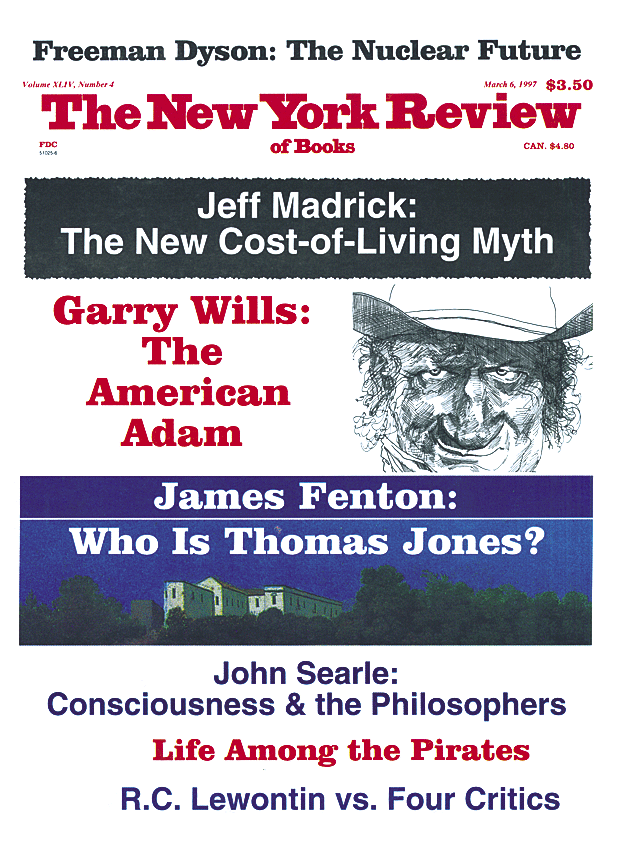In response to:
An Attack in Atlanta from the September 19, 1996 issue
To the Editors:
I am “the late Morris B. Abram” to whom Nicholas Lemann refers in the review of The (Atlanta) Temple Bombing [NYR, September 19, 1996].
Lemann is probably correct that few Temple members today “could articulate a program…of black progress that they would wholeheartedly support.”
Some reasons are to be found in Lemann’s review and in his classic study The Promised Land (Knopf, 1991).
In his review Lemann writes of the shock experienced by Temple Rabbi Rothschild who after two decades of commitment to the civil rights struggle was “booed for criticizing the black power movement.” Rothschild and so many others “feel the role of the ‘white liberal’ challenged and derided.” The transformation of the moral struggle for equality and integration into one for preference and separation has not been to the advantage of blacks and certainly not to the country.
There is a natural reaction to shy away from a movement in which one is unwelcome.
Next, there is also a tendency to withhold efforts when the problem seems to defy solution. One almost despairs of the tragic conditions of the Chicago ghettos as described in The Promised Land. There Lemann was surely right: “The ghettos bear the accumulated weight of all the bad in our country’s racial history, and they are now among the worst places to live in the world. Programs for middle-class blacks—affirmative action and minority set asides—are never going to set the country aflame with a sense of righteous purpose.”
Yet any opposition to these types of failed remedies which liberals are now called upon to support—are often labeled as “racist.”
The nation desperately needs the Rabbi Rothschilds and ministers such as Martin Luther King, Jr., who summoned America to great task by blowing the shofar of universal brotherhood.
Morris B. Abram
United Nations Watch
Geneva, Switzerland
Nicholas Lemann replies:
I hope that Mr. Abram will accept my deepest apologies for the mistake. I’m grateful that in its wake he was able to write such a kind and thoughtful letter.
But I would like to argue with him on the substantive point. My heart sank at Mr. Abram’s taking away from The Promised Land the lesson that “the problem seems to defy solution.” In just the section of the book he quotes from, I argued the opposite with some heat. In the optimistic early 1960s, most white liberals believed that the deep-seated problems of black America could be solved by a quick concerted dose of government action. When that didn’t prove to be the case, the optimism was at once replaced by the view that society had tried every possible intervention and each had failed completely. In fact the War on Poverty and related programs were small, short-lived, and not fully thought through—and they still coincided with the most dramatic growth in the black middle class in American history. Conditions in the inner city remain a critical problem for the country, and in the quarter-century since the War on Poverty ended, many thousands of people have been working to solve it, with some promising results. When I wrote that programs for middle-class blacks would not make much difference to the underclass, I meant that other programs to help the ghettos, which are much more desperately needed, could—not that we should abandon the effort.
It is true that white liberals who involve themselves in these matters will get a sometimes stormy reception. I know this from personal experience. But if one is not always welcome, does that mean that the moral call of America’s racial problems has become any less urgent, that one should not try to do anything or that nothing can be done?
This Issue
March 6, 1997


